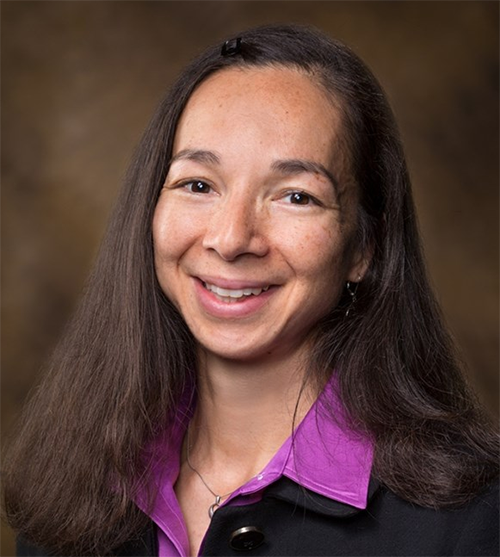FAYETTEVILLE, Ark. – The University of Arkansas has been awarded a $1 million grant from the National Science Foundation to better recruit and retain women faculty, particularly in the fields of science, technology, engineering and math — collectively known as the STEM fields.
Funded by NSF's ADVANCE program, the grant will go to support UA ENGAGE, which stands for Empowering Networked Groups for Arkansas Gender Equity. UA ENGAGE has the overarching goal of institutional transformation by adopting policies and practices to support underrepresented groups and mitigate organizational barriers to their success. UA ENGAGE will target gender and racial equity among faculty by& focusing on valuing and integrating women faculty, while also enhancing efforts to recruit diverse faculty.
Broadly, the grant seeks to address the disparities between the number of tenure track men and women faculty, with an emphasis on women of color and STEM fields, where the disparities are increasingly stark. Using data from 2018, researchers found that at the U of A women were roughly 42% of faculty, 18% of tenured faculty, and only 6% of tenured faculty in the STEM fields.
The grant will seek to address these inequities through a series of measures, including making service requirements more legible and transparent and equitably distributing faculty workloads. Research suggests that under the current system, women faculty bear a disproportionate burden of the service work, such as serving on committees. These systemic, time-consuming obligations can in turn frustrate research, networking and leadership opportunities, which are critical to career advancement.
The grant will also audit university policies and practices for gaps in equity as well as formalize mentoring and training programs through workshops, regular meetings and ongoing professional guidance. Finally, the grant will address the gap in tenure track positions and diversity by investing and improving the overall recruitment, onboarding and integration of women faculty into the university.
"This grant will help reduce the roadblocks to promotion and tenure many women faculty currently face. It will also strengthen the pathways to campus, increase support through mentoring and generate more leadership opportunities for women," said Yvette Murphy-Erby, vice chancellor for diversity and inclusion. "While the grant's focus is on women in STEM, it holds campus wide implications that extend beyond STEM. This is a big step for equity, inclusion and diversity."
Designed by an interdisciplinary team of researchers, UA ENGAGE's investigative team includes:
-
Shauna A. Morimoto, associate professor and chair of the Department of Sociology and Criminology
-
Yvette Murphy-Erby, vice chancellor for diversity and inclusion
-
Kim LaScola Needy, dean of the graduate school and international education
-
Charles Robinson, interim provost and vice chancellor for student affairs
-
Kathryn Sloan, vice provost for faculty affairs
Morimoto will serve as the project's principal investigator with the others serving as co-principal investigators.
"UA ENGAGE is a tremendous boost to the current momentum on campus to create a more equitable and diverse workforce and transform our culture and climate," Morimoto said. "Coinciding with funding for the University of Arkansas Institute for Integrative and Innovative Research and the work of the IDEALS Institute, this grant brings exciting opportunities for equity and change to the U of A and the state."
The UA ENGAGE proposal to the NSF builds on earlier work supported by the university. In 2018, a similar interdisciplinary team won a $120,000 grant from the Chancellor's Innovation and Collaboration Fund Grant for a project titled: "Advancing UA Women: A Pilot Study." Anne O'Leary- Kelly, Jennifer Taylor, and Anna Zajicek additionally served as co-principal investigators on this grant, and along with Todd Shields and Marcia Shobe, will work with the UA ENGAGE team.
The $1 million grant is part of the NSF's ADVANCE program, the goal of which is to foster a more diverse and capable science and engineering workforce. Specifically, the program strives to "broaden the implementation of evidence-based systemic change strategies that promote equity for STEM faculty in academic workplaces and the academic profession."
About the University of Arkansas: The University of Arkansas provides an internationally competitive education for undergraduate and graduate students in more than 200 academic programs. The university contributes new knowledge, economic development, basic and applied research, and creative activity while also providing service to academic and professional disciplines. The Carnegie Foundation classifies the University of Arkansas among fewer than 3 percent of colleges and universities in America that have the highest level of research activity. U.S. News & World Report ranks the University of Arkansas among its top American public research universities. Founded in 1871, the University of Arkansas comprises 10 colleges and schools and maintains a low student-to-faculty ratio that promotes personal attention and close mentoring.
Topics
Contacts
Shauna Morimoto, associate professor and chair
Department of Sociology and Criminology
479-575-3205,
Hardin Young, manager of executive communications
University Relations
479-575-6850,
